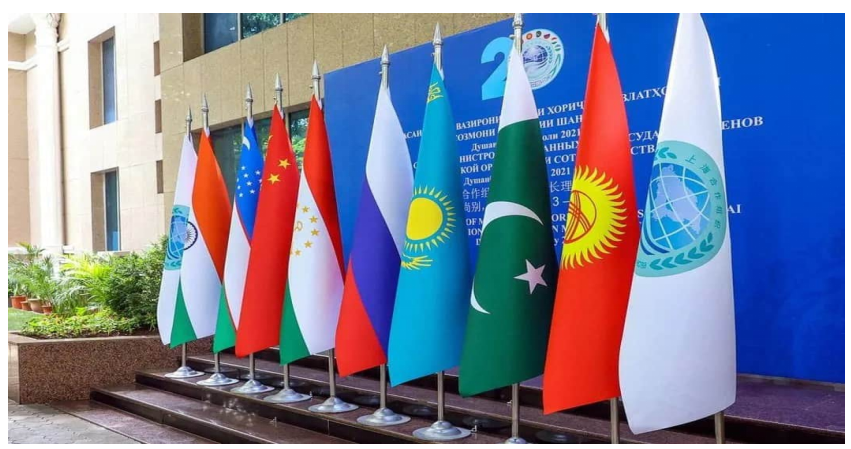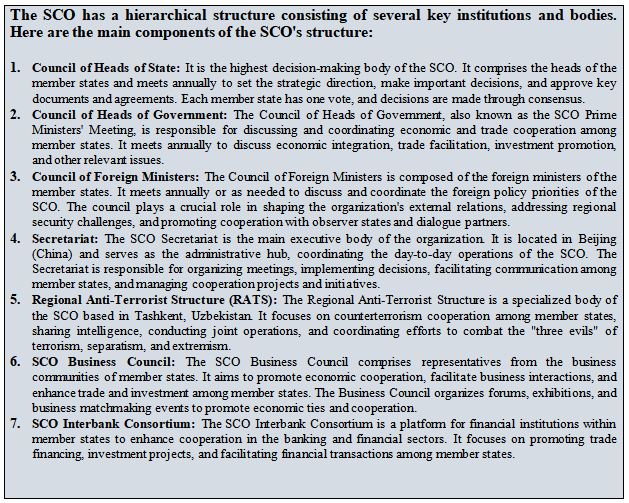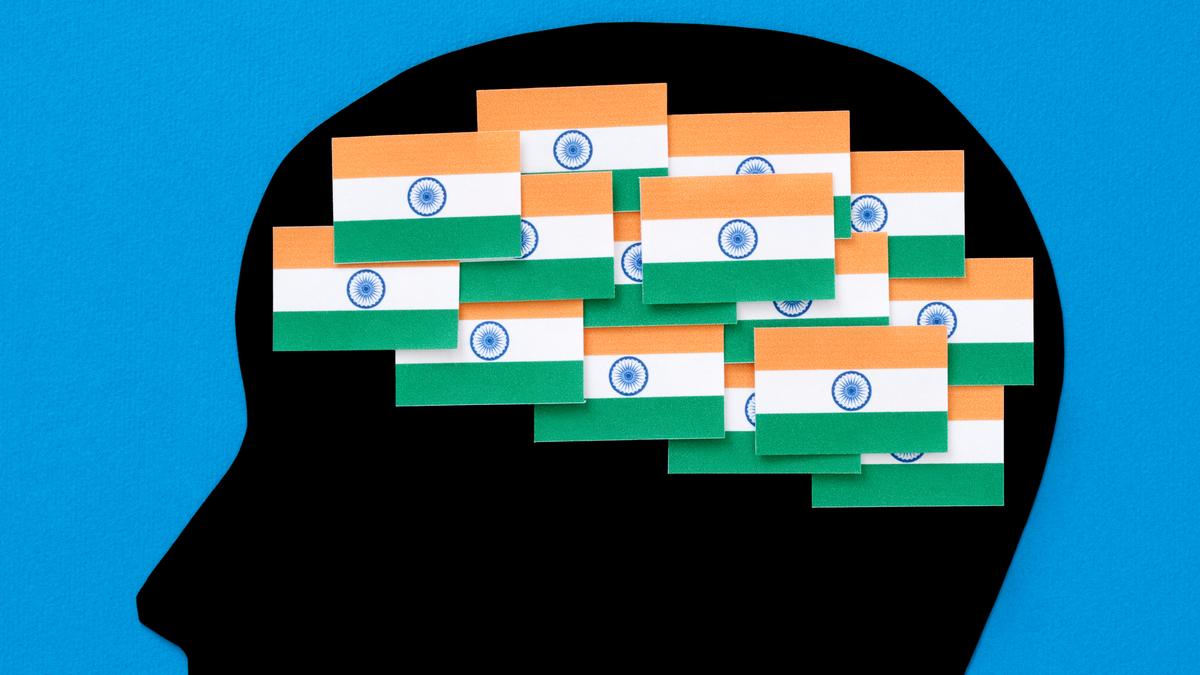- Courses
- GS Full Course 1 Year
- GS Full Course 2 Year
- GS Full Course 3 Year
- GS Full Course Till Selection
- Answer Alpha: Mains 2025 Mentorship
- MEP (Mains Enrichment Programme) Data, Facts
- Essay Target – 150+ Marks
- Online Program
- GS Recorded Course
- Polity
- Geography
- Economy
- Ancient, Medieval and Art & Culture AMAC
- Modern India, Post Independence & World History
- Environment
- Governance
- Science & Technology
- International Relations and Internal Security
- Disaster Management
- Ethics
- NCERT Current Affairs
- Indian Society and Social Issue
- NCERT- Science and Technology
- NCERT - Geography
- NCERT - Ancient History
- NCERT- World History
- NCERT Modern History
- CSAT
- 5 LAYERED ARJUNA Mentorship
- Public Administration Optional
- ABOUT US
- OUR TOPPERS
- TEST SERIES
- FREE STUDY MATERIAL
- VIDEOS
- CONTACT US
22nd SCO Meet
22nd SCO Meet

Latest Context:
Recently, the 22nd meeting of the Council of Heads of Government (CHG) under the Shanghai Cooperation Organization (SCO) was held in Bishkek (Kyrgyzstan).
More about the news:
- At the meeting, India’s Foreign Minister advised members to strictly follow the principles of international law, and to respect each other's sovereignty.
- CHG meeting under the SCO is held once in a year to discuss strategy for multilateral cooperation, adopt organisation's annual budget, etc.
Background of Shanghai Cooperation Organization (SCO)
1996: “Shanghai Five” was formed by China, Russia, Kazakhstan, Kyrgyzstan, and Tajikistan. The primary purpose was to address border security and territorial disputes after the dissolution of Soviet Union.
2001: The Shanghai Five was transformed into the Shanghai Cooperation Organization (SCO) during the summit in Shanghai, China.
2002: The SCO Charter was signed, mentioning the organization's objectives and principles. The main objectives of the SCO are to promote regional stability, economic cooperation, and security.
2003: The first SCO Summit was held in Beijing, China. The leaders discussed issues like security, counter-terrorism, and economic cooperation.
2004: The SCO granted observer status to several countries Iran, and Mongolia, as well as dialogue partner status to Belarus and Sri Lanka.
2005: The SCO expanded its scope beyond security and economic cooperation to address issues like energy security.
2007: Iran applied for full membership in the SCO but was not granted membership due to international concerns over its nuclear program.
2008: The Regional Counterterrorism Structure (RCTS) was established in Tashkent, Uzbekistan, to enhance security and counter-terrorism cooperation among member states.
2009: India and Pakistan expressed their desire to join the SCO during the Yekaterinburg Summit in Russia.
2010: India was granted observer status during the Tashkent Summit.
2012: Afghanistan, though not a member, was invited to attend the SCO Summit, recognizing the country's importance in regional security.
2014: During the Ufa Summit in Russia, it was announced that India and Pakistan will become full members of the SCO.
2015: Armenia, Azerbaijan, Cambodia, and Nepal were granted observer status.
2017: India and Pakistan officially became full members during the SCO Summit in Astana, Kazakhstan, expanding the organization's reach in South Asia.
2018: The SCO adopted the “Shanghai Cooperation Organization’s Development Strategy 2025”, outlining the organization's priorities and plans for the next decade.
2021: The SCO celebrated its 20th anniversary, reaffirming its commitment to enhancing cooperation in various fields.
2023: Iran officially joined the SCO as the 9th member country. Present members are: India, Iran, Kazakhstan, China, Kyrgyzstan, Pakistan, Russia, Tajikistan and Uzbekistan.
Significance of SCO
- Counterterrorism and Security: The SCO has been effective in promoting cooperation on counter-terrorism, counter-extremism, and countering separatism. Member states share intelligence and engage in joint military exercises to combat these common threats, which are significant in a region known for its terrorist organizations.
- Economic Cooperation: The organization promotes economic integration and cooperation through trade agreements, investment projects, and infrastructure development.
- Energy Security: Many SCO member states are rich in energy resources, and the organization plays a role in energy security by facilitating energy agreements and resource-sharing arrangements, helping meet the energy needs of member countries.
- Multilateral Diplomacy: The SCO enhances multilateral diplomacy by promoting dialogue between Eurasian and Central Asian countries. It encourages a multipolar world order and opposes unilateralism and hegemony.
- International Influence: The SCO enhances the international influence of its member states by providing them with a united front in global forums and negotiations. It enables member states to collectively address international challenges.
- Cultural Exchange: The SCO promotes cultural exchange, which fosters better understanding among member states and promotes people-to-people diplomacy.
Conclusion:
The SCO has evolved from a regional security organization to a strong multilateral entity, addressing a broad
range of challenges, including security, economic cooperation, and political dialogue. With the expansion
of its membership and its efforts to promote stability and development in the Eurasian region, the
organization has become a significant player in regional affairs.




